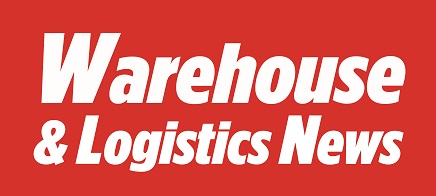 With more and more forklift truck users opting for electric-power over IC-engine driven machines when the time comes to replace or upgrade their materials handling equipment fleet, the coming years are expected to bring a clear shift away from diesel and LPG towards electric forklifts. In this article, Toyota’s counterbalance specialist, Paul Bowers, considers some of the factors driving the rise of the electric-powered forklift market.
With more and more forklift truck users opting for electric-power over IC-engine driven machines when the time comes to replace or upgrade their materials handling equipment fleet, the coming years are expected to bring a clear shift away from diesel and LPG towards electric forklifts. In this article, Toyota’s counterbalance specialist, Paul Bowers, considers some of the factors driving the rise of the electric-powered forklift market.
According to the most reliable estimates, the forklift market has historically been split roughly 60-40 between LPG- or diesel-powered internal combustion engine (IC) trucks and battery-driven electric models – with diesel being the most dominant fuel. But the coming years are anticipated to bring a clear shift away from diesel and LPG towards electric forklifts.
At Toyota Material Handling we expect the UK market for electric counterbalanced forklift trucks to grow by as much as 10 per cent in the next five years as more and more truck users opt for electric-power over IC-engine driven machines when the time comes to replace or upgrade their fleets.
The rise of the electric lift truck can be attributed to a number of different factors – including heightened environmental concerns, rising fuel prices and greater awareness of staff welfare.
Advances in battery technology, such as the further development of lithium-Ion and to a lesser extent (for now) hydrogen fuel cells, are also leading to greater interest in electric power.
Of course, environmental issues have been on the corporate agenda for many years but recent talk of the introduction of a ‘carbon emissions tax’ has seen a sharp increase in the truck users that include like-for-like carbon emissions comparisons as part of their forklift fleet purchasing process.
But it would be wrong to conclude that the electric truck market is only growing because diesel sales are in decline: recent developments in technology mean the electric lift truck is now a highly sophisticated product that offers real business benefits to the broadest range of users.
Perhaps the single biggest technological advance behind the upsurge in electric truck sales is the arrival of the lithium-ion battery. While lead acid remains by far the dominant battery type within the electric-powered forklift market, sales of Lithium-ion forklifts have been on a sustained upward curve for some time.
Nearly a quarter of all Toyota electric-powered forklift trucks ordered for delivery in the UK now feature Lithium-Ion battery (LiB) technology.
Today, Lithium-ion is revolutionising the way some companies operate their intralogistics processes. Lithium-ion batteries have the ability to be recharged in as little as one hour – which increases a truck’s overall availability. One hour’s charging will give in the region of 4 to 5 hours of operating time.
Hydrogen fuel cells are also emerging as another viable alternative to lead acid batteries. At the present time, Hydrogen only becomes financially realistic where in the region of 90+ trucks are in operation at one location due to the significant investment required in hydrogen generation and storage systems, so the potential user market is currently limited.
But large fleet operators are keen to embrace the technology and Toyota Hydrogen fuel cell-powered forklifts are already operating at sites across the Nordic region and Europe as well as Australia.
But, despite the worldwide rush to eliminate – or at least minimise – the use of fossil fuels and the myriad benefits that electric trucks offer, it is unlikely that we are witnessing the last days of the diesel-powered lift truck.
There are currently still numerous applications, particularly where extra-heavy lifting is involved and truck capacities of 8 tonnes and over are required, where a diesel forklift remains the best option. This might not be the case in 10 years’ time though.
Companies considering switching from IC- to electric-engine forklift trucks, should always discuss their options with their MHE supplier who will be able to assess the benefits of going electric for every type of operation.
For more information on the range of Toyota electric forklifts visit toyota-forklifts.co.uk/make-the-shift




Comments are closed.